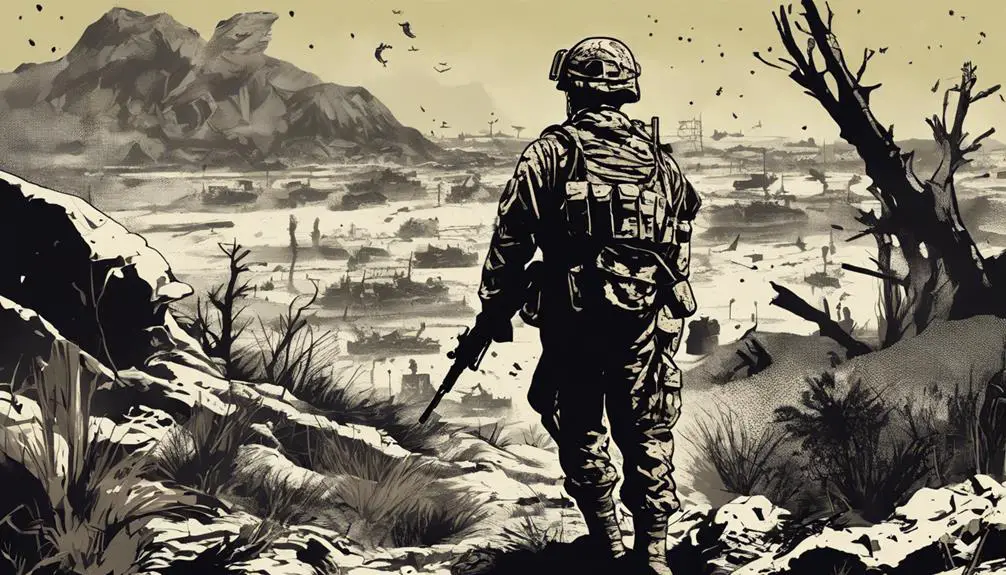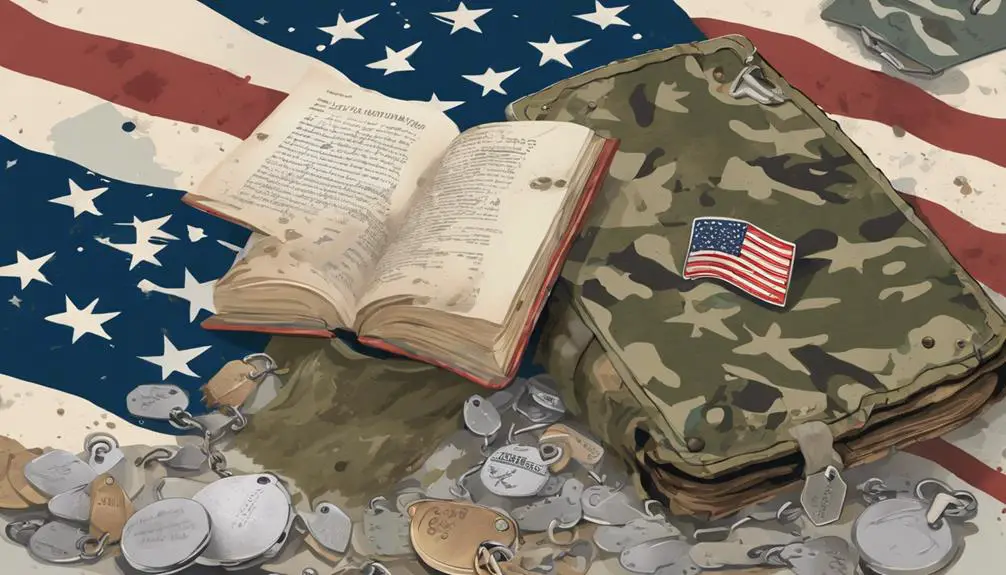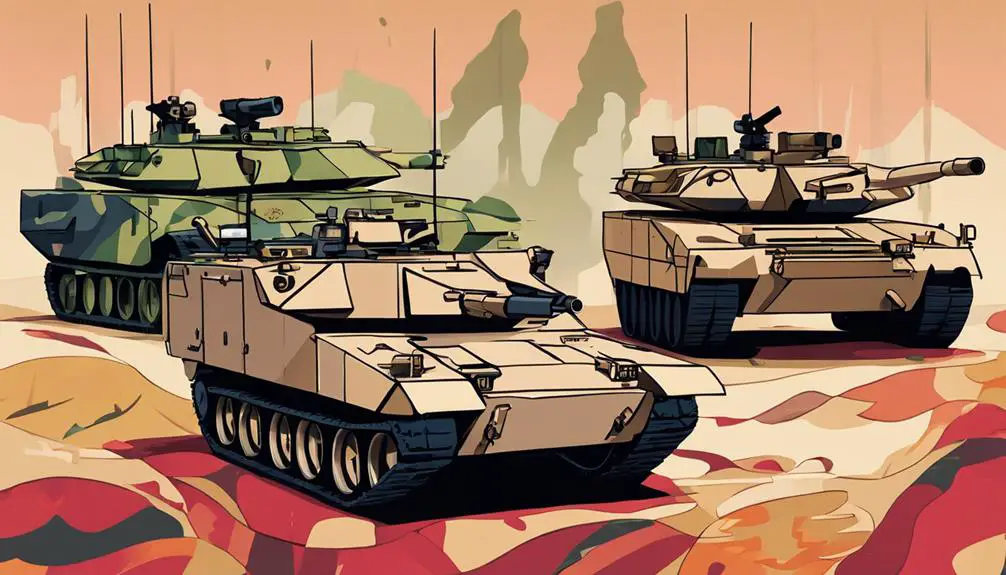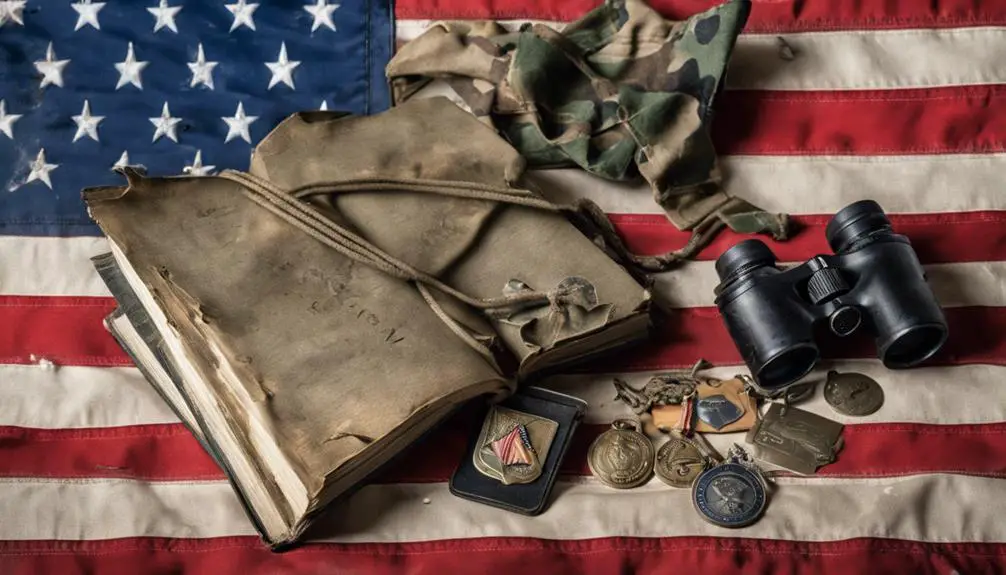You're about to explore the unofficial language that's essential for effective communication, builds camaraderie, and helps cope with stress in the military. Military slang is a dynamic, adaptive language that evolves over time, incorporating new technologies and cultural influences. It's a powerful tool for conveying complex ideas and emotions with precision and humor. From battlefield terms to everyday expressions, you'll discover a world of acronyms, phrases, and nicknames that reflect unit culture and promote unity. As you navigate this military slang dictionary, you'll uncover the rich nuances of this unique language, and uncover the secrets that make it an integral part of military culture.
Common Military Acronyms

You'll encounter over 1,000 military acronyms during your service, and mastering the most common ones is essential for effective communication. Acronyms are an integral part of military language, and understanding their origins and evolution is important for seamless communication.
The military's reliance on acronyms dates back to World War I, when abbreviations like 'SNLF' (Seabee Naval Lighterage Force) simplified communication. As the military expanded, so did the use of acronyms. Today, they're used to convey complex information quickly and efficiently.
Understanding the evolution of abbreviations is crucial. For instance, 'CINC' (Commander-in-Chief) was initially used during World War II, while 'COIN' (Counter-Insurgency) emerged during the Vietnam War.
Familiarizing yourself with these abbreviations will help you navigate military jargon with confidence. Remember, in the military, clear communication is key to success. By grasping the most common acronyms, you'll be better equipped to work with your team and achieve your objectives.
Slang for Ranks and Roles
In the military, ranks and roles have their own set of colloquialisms that can take time to get used to, but mastering them is essential for effective communication and a smoother adjustment into military life.
You'll quickly learn that 'butterbar' refers to a second lieutenant, while a 'gunny' is a gunnery sergeant. Understanding these colloquialisms can also provide insight into the origins of certain ranks. For instance, the term 'lieutenant' comes from the French 'lieu tenant,' meaning 'place holder,' as they were originally placeholders for higher-ranking officers.
Here are a few more examples of slang for ranks and roles:
- E-1 to E-3: 'grunt' (enlisted personnel)
- O-1 to O-3: 'butterbar' (junior officer) or 'JO' (junior officer)
- E-9: 'gunny' (gunnery sergeant)
It's also important to be aware of officer stereotypes, such as the 'mustang' officer, who rises from the enlisted ranks, or the 'ring-knocker,' who attended a prestigious military academy.
Mastering these colloquialisms will help you navigate military life with confidence and clarity.
Battlefield and Combat Terms

When engaging in military operations, understanding the nuances of battlefield and combat terminology is crucial for effective communication and tactical success. You need to be familiar with terms that describe the battlefield environment, combat actions, and tactical maneuvers. For instance, you'll hear 'Combat Zone' (CZ) referring to the area of ongoing combat operations.
In the aftermath of a mission, you'll participate in a 'Tactical Debrief' (TD) to review what went right, what didn't, and what you can improve on for future ops. You'll also need to understand call signs, frequencies, and communication protocols to stay connected with your team.
Terms like 'SITREP' (Situation Report) and 'OPORD' (Operations Order) will become second nature as you receive and provide critical mission updates. Familiarize yourself with these combat terms to ensure seamless collaboration and effective execution of your mission objectives.
Military Food and Drink Lingo
Military jargon extends to the mess hall, where troops use specific terms to order chow, request supplies, and even describe their culinary experiences. You'll hear phrases like 'chow down' to eat quickly, 'mess kit' to refer to your personal eating utensils, and ' Chow Halls' for the dining facilities.
Here are some essential terms to know:
- MRE (Meals, Ready-to-Eat): pre-cooked, pre-packaged meals used in the field.
- Chow line: the line where you pick up your food in the mess hall.
- Ration pack: a boxed or bagged set of food and drink, often used during deployments.
In the military, food and drink lingo is an integral part of daily life. From ordering meals to requesting supplies, understanding these terms will help you navigate the culinary side of military life.
Everyday Military Expressions

You'll frequently hear everyday expressions like 'hump' to describe a difficult task or 'squared away' to mean organized and efficient, which are essential to understanding casual conversations among troops. In the military, everyday expressions are an integral part of the culture, and understanding them is important for effective communication.
Here are some common everyday military expressions:
| Expression | Meaning |
|---|---|
| Hump | A difficult task or challenge |
| Squared Away | Organized and efficient |
| Boot | New recruit or rookie |
| Mess Hall Etiquette | Rules of behavior in the dining hall |
| High-Speed, Low-Drag | Extremely skilled or efficient |
In Boot Camp Lingo, you'll often hear these expressions used to convey important information or to provide guidance. For instance, an instructor might tell a new recruit to 'get squared away' before an inspection. Similarly, a fellow soldier might warn you about a 'hump' of a task ahead. Understanding these expressions is necessary for everyday conversations in the military. By familiarizing yourself with these expressions, you'll be better equipped to communicate effectively and fit in with your unit.
Radio Communication Phrases
Effective radio communication relies on using standardized phrases to convey critical information quickly and accurately.
As a military personnel, you know that clear communication is vital in high-pressure situations. That's why understanding radio communication phrases is essential.
To maintain radio etiquette and adhere to communication protocols, you should:
- Use clear and concise language: Avoid using jargon or complex terminology that may confuse others.
- Identify yourself and your unit: Clearly state your name, rank, and unit to guarantee proper identification.
- Confirm receipt of messages: Respond with 'roger' or 'copy' to acknowledge receipt of messages.
Military Vehicle Nicknames

As you navigate the battlefield, familiarizing yourself with the various military vehicle nicknames can help you quickly identify and communicate the presence of friendly or enemy forces. You'll hear colloquialisms like 'Wheels Wonders' referring to the M35 2.5-ton cargo truck, a workhorse for logistical support. When you hear 'Tank Tales,' it's likely a reference to the M1 Abrams, a main battle tank. Knowing these nicknames will help you stay situationally aware and communicate effectively with your team.
Familiarizing yourself with these nicknames can also help you decipher radio transmissions and situational reports. For instance, if you hear 'Sierra-1' over the radio, you'll know it's a reference to the M113 armored personnel carrier. Similarly, 'War Pig' might refer to the M60 Patton tank. By recognizing these nicknames, you'll be better equipped to respond to changing battlefield dynamics and make informed decisions.
Stay vigilant, stay informed, and stay ahead of the curve with a solid understanding of military vehicle nicknames.
Funny Military Expressions
In the trenches, troops often rely on humor to cope with high-pressure situations, and funny military expressions become an essential part of the lexicon. You've probably heard of 'FNG' (Freaking New Guy), but there are many more where that came from.
Here are a few examples of the humor that gets troops through tough times:
- War Jokes: Remember that time the sergeant's joke about the enemy's 'early retirement plan' had everyone in stitches? Yeah, that was a close call.
- Boot Camp Antics: Who could forget the time your drill sergeant 'accidentally' turned the obstacle course into a mud pit?
- Sarcasm as a Love Language: When your buddy 'lovingly' refers to you as 'Buttercup' after a rough training exercise, you know they care.
These expressions mightn't be in any official manual, but they're essential to the military experience. They're a reminder that, even in the most intense situations, a sense of humor can be a powerful tool for building camaraderie and coping with stress.
Frequently Asked Questions
What's the Origin of the Term "Grunt" for an Infantry Soldier?
You're curious about the origins of the term 'grunt' for an infantry soldier. Historically, the term emerged during the Vietnam War, derived from the sound infantrymen made while carrying heavy packs.
Etymologically, it's linked to the word 'grunt,' meaning a low, rough noise. Given these circumstances, it signifies the physical exertion and hardship endured by infantry soldiers.
You'll find that this term has stuck, becoming an integral part of military culture and lingo.
Can Military Slang Vary Between Different Countries' Armies?
As you explore military slang, you'll notice that cultural differences and language barriers greatly influence its variation between countries' armies.
For instance, the Australian Army uses 'digger' for infantry soldiers, whereas the British Army uses 'squaddie.'
These differences stem from unique cultural and historical contexts, making military slang a reflection of each nation's distinct identity.
Are Military Slang Terms Used by All Branches of the Military?
You'll find that military slang terms aren't universally used across all branches. Branch differences and inter-service variations come into play.
For instance, the Army's 'Hooah' (meaning 'yes' or 'agreement') isn't commonly used in the Navy, where 'Aye' or 'Affirm' are preferred.
Similarly, the Air Force's 'Bingo Fuel' (minimum fuel required for a safe landing) isn't typically used in the Marines.
These differences highlight the unique cultural identities within each branch.
Do Military Slang Terms Change Over Time or Remain the Same?
As you explore the world of military slang, you'll notice that terms evolve, adapt, and sometimes disappear. You'll find that slang evolution is a natural process, driven by language adaptation and cultural shifts.
While some terms remain steadfast, others fade away, replaced by new phrases that reflect changing times and experiences. You'll see that military slang isn't static, but rather a dynamic reflection of the people who use it.
Are Military Slang Terms Used by Military Personnel in Civilian Life?
As you shift back to civilian life, you'll likely find yourself carrying military slang into your everyday conversations. You'll discover that certain terms, like 'situational awareness' or 'boots on the ground,' seamlessly integrate into your workplace culture.
Civilian integration can be smooth, but it's crucial to gauge your audience's familiarity with military lingo. Be prepared to adapt and adjust, ensuring effective communication in your new professional environment.
Conclusion
You've now got a thorough military slang dictionary at your fingertips. From acronyms to vehicle nicknames, you're equipped to communicate like a pro.
You might think, 'But won't using slang alienate civilians?' Not if you're aware of your audience and use discretion.
Remember, military slang serves a purpose: to convey complex ideas quickly and efficiently. Mastering this lexicon will enhance your professionalism, not hinder it.







